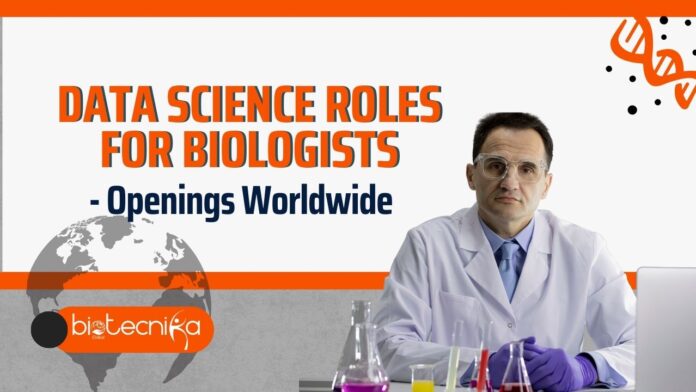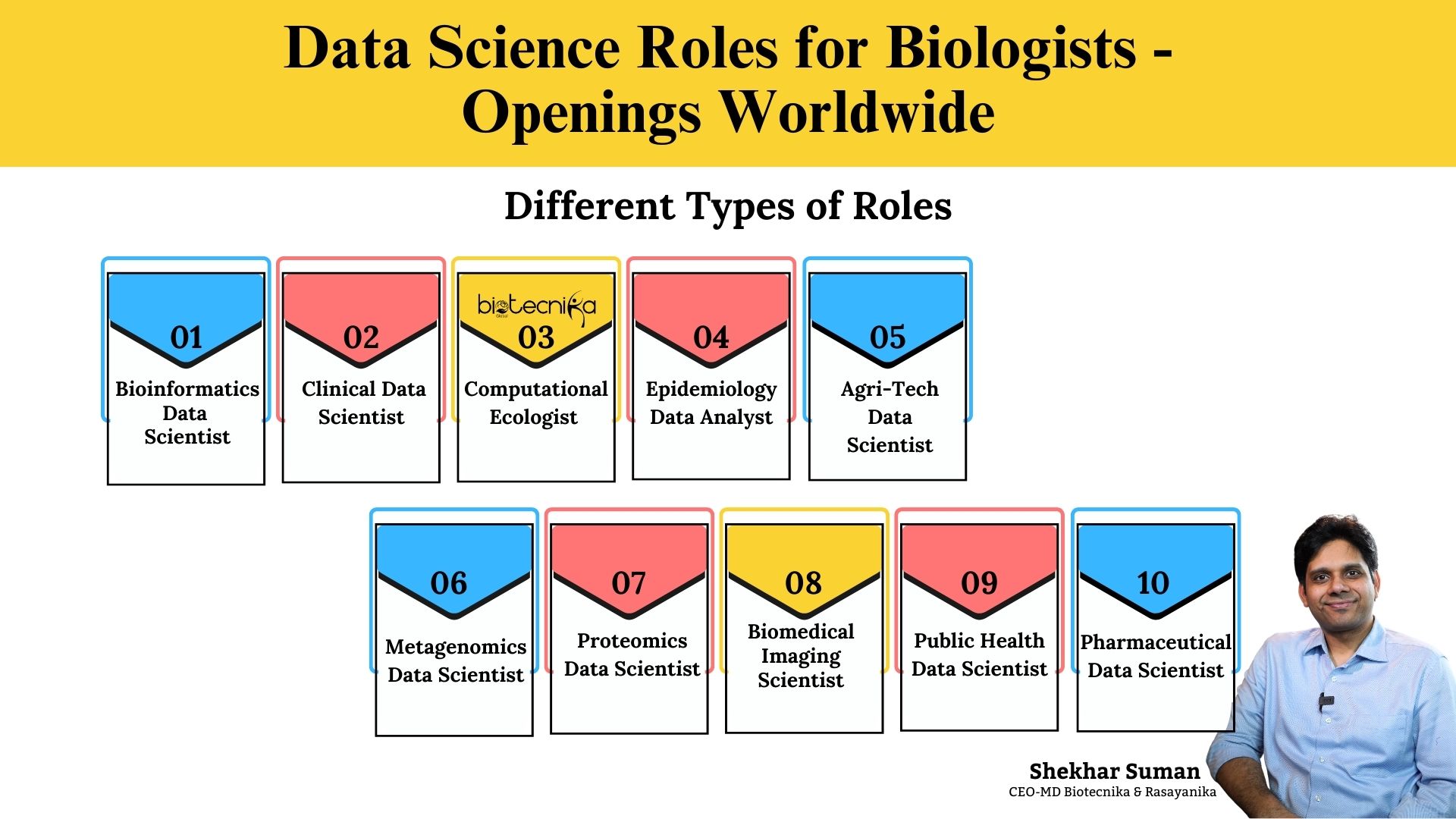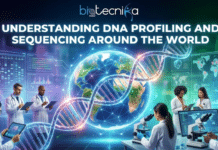Data Science Roles for Biologists – Openings Worldwide
One of the main reasons biologists have a unique job opportunity in the market is that the data generated daily is increasing exponentially. Hence, the job sector also requires well-versed professionals for processing and understanding a vast amount of bio-data. Biologists are gaining global importance and are expected to lead the industry in the upcoming years.
In this article, we’ll explore why these roles are rising, the exciting opportunities available, global hiring trends, and how biologists, whether via an online course or a tailored Data Science Program, can bridge into the world of data science online. This article aspires to inspire you all with optimism, as biologists are already primed with analytical thinking, experimental design insights, and a passion for uncovering nature’s secrets through numbers.
Why Biologists Make Excellent Data Scientists?
Biologists bring a powerful blend of domain knowledge and analytical rigor to the field of data science. Whether studying gene expression, ecological networks, or epidemiological patterns, biologists are trained to design experiments by creating a few hypotheses. They also recognize patterns in complex systems and attempt to understand the most complex ones. Biologists are responsible for interpreting the uncertainty and variability in real-world situations. Apart from these responsibilities, they are also expected to communicate the findings to the general public and diverse audiences clearly and thoroughly.
These strengths are invaluable in data science roles for biologists, where understanding the context behind the data is as essential as technical fluency. Global industries, ranging from pharmaceuticals and agriculture to environmental consulting, are seeking professionals who can decipher biological complexity using statistical tools.
By highlighting this unique value proposition, biologists can land roles such as bioinformatics data scientist, epidemiology data analyst, or computational ecologist. Plus, the ability to collaborate across interdisciplinary teams is a highly sought-after soft skill.
Top 10 Roles & Companies Hiring Biologists with Data Science Skills
| Job Role | Employer Example | Who Can Apply |
| Bioinformatics Data Scientist | Illumina (USA, UK, India) | MSc/PhD in Biotechnology, Genomics, Bioinformatics; experience in Python/R. |
| Clinical Data Scientist | AstraZeneca (India, EU) | Life science graduates with exposure to clinical research, trial data, SAS, and SQL. |
| Computational Ecologist | Smithsonian Institution (USA) | Environmental scientists, ecologists, or biology grads with GIS/QGIS + R skills. |
| Epidemiology Data Analyst | WHO / CDC (Global) | Public health, microbiology, epidemiology grads with statistics + ML knowledge. |
| Biomedical Imaging Scientist | Philips Healthcare (Netherlands) | Biologists/biomedical engineers skilled in AI, image analysis (CNNs, TensorFlow). |
| Agri-Tech Data Scientist | Corteva Agriscience (India/USA) | Agriculture/plant science grads with skills in data science, drones, and GIS. |
| Proteomics Data Scientist | Genentech (Roche) (USA) | MSc/PhD in Biochemistry, Structural Biology, or Proteomics with ML skills. |
| Metagenomics Data Scientist | Biobot Analytics (USA) | Microbiology/biotech grads with NGS analysis experience and Python/R expertise. |
| Public Health Data Scientist | Bill & Melinda Gates Foundation | Global health/epidemiology/public health grads skilled in data visualization. |
| Pharmaceutical Data Scientist | Novartis (USA, India) | Pharma/chemistry/biology grads with computational chemistry & ML background. |
Who Can Apply for Data Science Roles in Biology?
One of the best reasons for choosing this path is that data science in biology is not limited to just computer scientists; biologists with the right upskilling can absolutely thrive here. The above-mentioned roles are open to:
- Life Science Graduates & Postgraduates – MSc, PhD holders in Biotechnology, Microbiology, Biochemistry, Genetics, Molecular Biology, or related fields.
- Medical & Healthcare Professionals – MBBS, PharmD, BDS, or Nursing graduates interested in clinical data analytics.
- Environmental & Agricultural Scientists – Those working with field data, ecology, or crop research who want to add computational tools to their work.
- Bioinformaticians & Biostatisticians – With experience in coding (Python, R, SQL) or statistical modeling.
The job role can be beneficial for those candidates who are trying to switch careers. IT professionals or statisticians with a passion for biology can also transition into this field after completing specialized training. These opportunities highlight the growing demand for data science roles for biologists, not just in academia but also across healthcare, pharma, and environmental sectors worldwide.
Global Landscape: Openings Worldwide
The job market for data science roles for biologists is thriving worldwide:
- North America and Europe: Major pharmaceutical firms, biotech startups, and research institutions are hiring biologists with data literacy for genomic analysis, drug discovery, and health surveillance.
- India: With its booming biotech industry and robust IT ecosystem, India offers burgeoning opportunities. Candidates with thorough knowledge of data science credentials or those who have completed a data science online program can stand out in competitive applicant pools.
- Asia-Pacific & Australia: Environmental agencies and agri-tech companies are employing biologists to apply remote sensing, climate modeling, and species distribution modeling—many roles hybridize fieldwork with advanced analytics.
Here’s a quick overview of companies actively recruiting biologists with data science skills, as listed and posted on BioTecNika.com:
| Company | Role Title | Location | Posting Link |
| Novartis Biomedical Research | Expert Data Science (Omics, Machine Learning) | Switzerland | View Job |
| Protillion Biosciences | Bioinformatic Data Scientist | USA (Carlsbad, CA) | View Job |
| Gilead | Bioinformatics Research Scientist | Not specified | View Job |
Practical Tips for Standing Out Globally:
Breaking into data science from a biology background can feel overwhelming—but the truth is, you already have many of the skills employers value. Here are some simple, actionable steps that can help you stand out:
- Build a biology-focused portfolio: Don’t just say you know Python or R, show it. Create small projects using open datasets, like cancer genomics (TCGA) or biodiversity data (GBIF). Upload them to GitHub or Kaggle so recruiters can actually see your work.
- Showcase collaborations: If you’ve ever worked with statisticians, computer scientists, or software teams, highlight it. Employers appreciate seeing that you can bridge the gap between wet-lab experiments and computational analysis.
- Certification Courses: Earning certificates from an online course will enhance your chances of grabbing a job of your dream. However, remember that what really grabs attention is your portfolio and how you’ve applied those skills.
- Network with intent: Join LinkedIn groups, attend webinars, or connect on Slack communities dedicated to bioinformatics and data science. Many opportunities are shared informally before they’re ever posted online.
- Stay updated: Learn the tools shaping the field, such as TensorFlow for genomics, scikit-learn for predictive modeling, or QGIS for ecological mapping. Even a few well-documented projects using these tools can make you look job-ready.
Ultimately, succeeding in data science roles for biologists comes down to showcasing both your domain expertise and your ability to translate complex datasets into real-world impact.
The world is calling for biologists who can wield data as deftly as pipettes and notebooks. Data science roles for biologists are emerging in labs, startups, NGOs, and agencies around the globe. Whether you strengthen your foundation with a formal educational background or expand your skills through an online course, a career in data science offers a thriving path. One should start with small projects related to biology and share their work on relevant platforms to gain visibility.
With a vision of unique scientific insight and a growing analytical toolkit, one will be poised to lead exciting discoveries at the interface of life sciences and data. The future is bright, let your curiosity guide you there!







